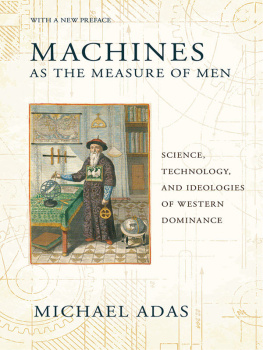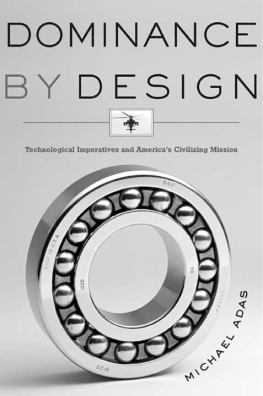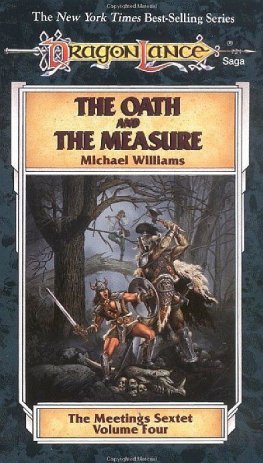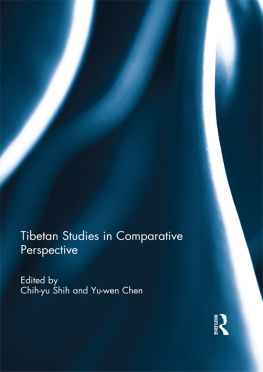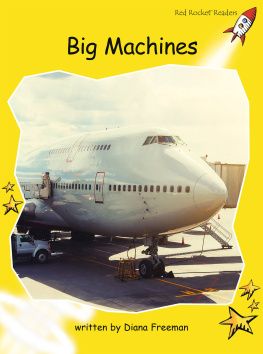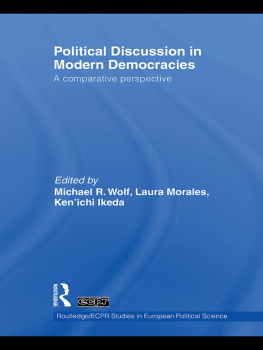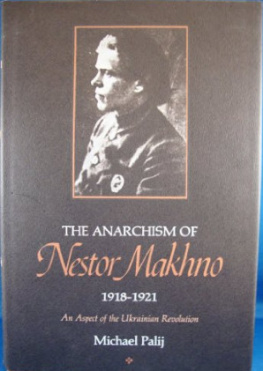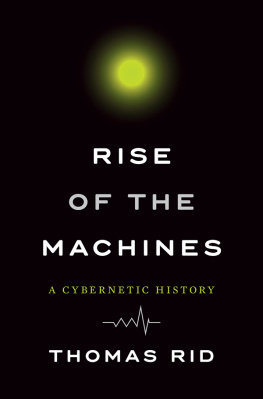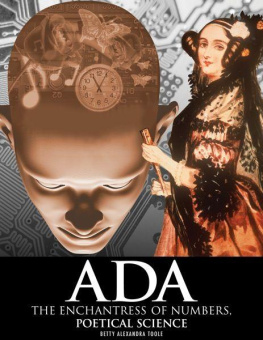Michael Adas - Machines as the Measure of Men (Cornell Studies in Comparative History)
Here you can read online Michael Adas - Machines as the Measure of Men (Cornell Studies in Comparative History) full text of the book (entire story) in english for free. Download pdf and epub, get meaning, cover and reviews about this ebook. year: 2015, publisher: Cornell University Press, genre: Politics. Description of the work, (preface) as well as reviews are available. Best literature library LitArk.com created for fans of good reading and offers a wide selection of genres:
Romance novel
Science fiction
Adventure
Detective
Science
History
Home and family
Prose
Art
Politics
Computer
Non-fiction
Religion
Business
Children
Humor
Choose a favorite category and find really read worthwhile books. Enjoy immersion in the world of imagination, feel the emotions of the characters or learn something new for yourself, make an fascinating discovery.
- Book:Machines as the Measure of Men (Cornell Studies in Comparative History)
- Author:
- Publisher:Cornell University Press
- Genre:
- Year:2015
- Rating:3 / 5
- Favourites:Add to favourites
- Your mark:
- 60
- 1
- 2
- 3
- 4
- 5
Machines as the Measure of Men (Cornell Studies in Comparative History): summary, description and annotation
We offer to read an annotation, description, summary or preface (depends on what the author of the book "Machines as the Measure of Men (Cornell Studies in Comparative History)" wrote himself). If you haven't found the necessary information about the book — write in the comments, we will try to find it.
Michael Adas: author's other books
Who wrote Machines as the Measure of Men (Cornell Studies in Comparative History)? Find out the surname, the name of the author of the book and a list of all author's works by series.
Machines as the Measure of Men (Cornell Studies in Comparative History) — read online for free the complete book (whole text) full work
Below is the text of the book, divided by pages. System saving the place of the last page read, allows you to conveniently read the book "Machines as the Measure of Men (Cornell Studies in Comparative History)" online for free, without having to search again every time where you left off. Put a bookmark, and you can go to the page where you finished reading at any time.
Font size:
Interval:
Bookmark:
MICHAEL ADAS
MACHINES AS THE
MEASURE OF MEN
Science, Technology, and Ideologies
of Western Dominance
With A New Preface
CORNELL UNIVERSITY PRESS
ITHACA AND LONDON
For John Smail
As teacher and scholar,
a model for us all
THE PATTERNS I explore in this book began to coalesce decades ago when as a graduate student at the University of Wisconsin I was intrigued by the similarities between the arguments of modernization theorists, whose works were obligatory reading for non-Western specialists at the time, and of nineteenth-century advocates of European colonization, the focus of much of my own research and writing. The comparative methodology and cross-cultural orientation I gained in those years from participating in the Comparative Tropical History Program, which Philip Curtin had so skillfully put together in Madison, are as fundamental to this book as they have been to my previous work. In the ten years since I began sustained research for Machines as the Measure of Men, I have received generous support, useful critiques, and timely encouragement from a variety of sources. The John Simon Guggenheim Memorial Foundation and the Rutgers Research Council provided funding for two consecutive years of essential research and writing. Philip Curtin, Theda Skocpol, Joseph Miller, and Peter Steams gave me useful advice and support in the formative stages of the project. I also benefited greatly at that point from responses to portions of the work by members of the history departments at Duke University, the University of Pennsylvania, and the School of Oriental and African Studies at the University of London. The collections and able staffs of the British Library, the India Office Records and Library, and the School of Oriental and African Studies greatly facilitated the often daunting task of research on themes covering several civilizations over five centuries. I owe a special debt to colleagues at Rutgers and other universities who have read and carefully criticized portions of the manuscript. Philip Curtin, Robert Gottfried, Reese Jenkins, David Ludden, Philip Pauley, Kevin Reilly, Herb Rowen, and Traian Stoianovich provided detailed responses to the early sections. Scott Cook, Frederick Cooper, Victoria de Grazia, Michael Geyer, Allen Howard, David Leverenz, David Levering Lewis, Arthur Mitzman, Richard Rathbone, James C. Scott, Michael Seidman, Laura Tabili, Mark Wasserman, and Lewis Wurgaft made useful suggestions for revision on the sections dealing with the nineteenth century. I am especially indebted to Ramchandra Guha, who read the entire manuscript and supplied invaluable leads and criticisms from an ecological and developmental perspective. John Ackerman of Cornell University Press provided timely encouragement and useful suggestions over the last half decade, and Patricia Sterlings rigorous and thoughtful editing should make things a good deal easier for the reader. From my friend and co-teacher, Lloyd Gardner, I learned much about American variations on the themes considered, and I benefited greatly from the stylistic suggestions of two other friends: Karen Wunsch, and my wife, Jane. Jane and my children, Joel and Claire, provided encouragement and the companionship I needed to see me through a project that at times seemed boundless and impossible. Claire also directed me to some literary sources that wonderfully illustrated the themes I was exploring.
My dependence on the research and scholarship of specialists in the areas compared in the book and of those who have preceded me in the exploration of cross-cultural themes will be obvious to the reader. I have tried to indicate in the footnotes particularly influential authors and works. As the notes suggest, the literature relating to the patterns considered is vast. I am well aware that a single book cannot possibly cover all the relevant sources or treat comprehensively all the issues related to the complex processes and broad themes addressed here. I cannot pretend that I have found definitive answers to the many questions my research has raised. I can only hope that I have got some of the questions right and have begun the search for answers that will help us to better understand the central process of modern history, the expansion of the West and Euroamerican interaction with the other cultures and civilizations of the globe.
MICHAEL ADAS
Rutgers University
Machines as the Measure of Men began as a critique of modernization theory. As a graduate student in Southeast Asian and global history in the late 1960s, I shared with my peers a compulsory immersion in the pretentiously theoretical works of W. W. Rostow, Daniel Lerner, Alex Inkeles, and an array of then prominent pundits. Virtually all of these priests of high modernism conceived it in exclusively Western-centric ways. They assumed there was a single proper trajectory through which the peoples of postcolonial nations should (and would inevitably) traverse the successive stages of human development culminating in industrialized, mass-consumerist democratic societies. For many of us preparing for careers in academe or foreign service, these convictionsand the policies that were shaped by themwere ethnocentric, hubristic, environmentally toxic, and grounded in a deeply problematic reading of the recent half-millennium or so of global history. Because the high tide of modernization theory ran concurrently with the American intervention in Vietnam and other misguided military forays into developing nations, its potential as a crusader ideology that legitimized mass killing was also apparent.
After several years of teaching and writing about European colonialism and movements of resistance to it, I was convinced that I needed to transform a rather narrow critique of modernization theory into a more ambitious project both in terms of the range of issues it addressed and breadth of the time frame and the geographical areas encompassed. As the number and diversity of the case examples I included in my comparative explorations grew, my scholarship focused increasingly on the pivotalbut very often neglectedrole that science and technology had played in European expansion, conquest, governance, and resource extraction in colonized areas. I also came to recognize the considerable extent to which European ideologies of dominance based on scientific and technological measures of human worth had prefigured and often explicitly informed the presuppositions and arguments of modernization theorists. Thus, it became clear to me that Machines as the Measure of Men needed to begin with chapters on the preindustrial genesis of the scientific and technological standards that Europeans deployed throughout four centuries of overseas expansion to assert the exceptional nature of Western aptitudes and achievement. Rather than a sweepingand necessarily shallowglobal survey of these developments, I decided to limit my comparison to three culture areas where my research, teaching, and writing had been focused during and since my graduate days at the University of Wisconsin: sub-Saharan Africa, India, and China. The opening chapter of the book on the early centuries of European expansion necessarily included reliance on Portuguese, Dutch, and to some extent German accounts, whereas the remainder of the study is devoted to the assessments and ideologies of the British and French.
While it is true that the Europeans in the first phase of their overseas ventures viewed their Christian faith as the primary measure of their superiority, they also stressed differences in material culture to set themselves apart from, and at times above, the peoples they contacted overseas. Cities, monumental architecture, sophisticated weaponry, and literacy were routinely cited as defining features of high civilizations well into the twentieth century. But often the remarkable achievements of the societies they encountered deflated rather then enhanced European pretensions of preeminence. Nonetheless, even their accounts of societies, such as the Ming Empire and the kingdoms of South Asia that consistently evoked wonder rather than disdain, were often punctuated with commentary on the unprecedented advancements Europeans had made in ship design and navigational instruments, weaponry, mapmaking, clocks and conceptualizing time, and representing spatial relationships.
Next pageFont size:
Interval:
Bookmark:
Similar books «Machines as the Measure of Men (Cornell Studies in Comparative History)»
Look at similar books to Machines as the Measure of Men (Cornell Studies in Comparative History). We have selected literature similar in name and meaning in the hope of providing readers with more options to find new, interesting, not yet read works.
Discussion, reviews of the book Machines as the Measure of Men (Cornell Studies in Comparative History) and just readers' own opinions. Leave your comments, write what you think about the work, its meaning or the main characters. Specify what exactly you liked and what you didn't like, and why you think so.

